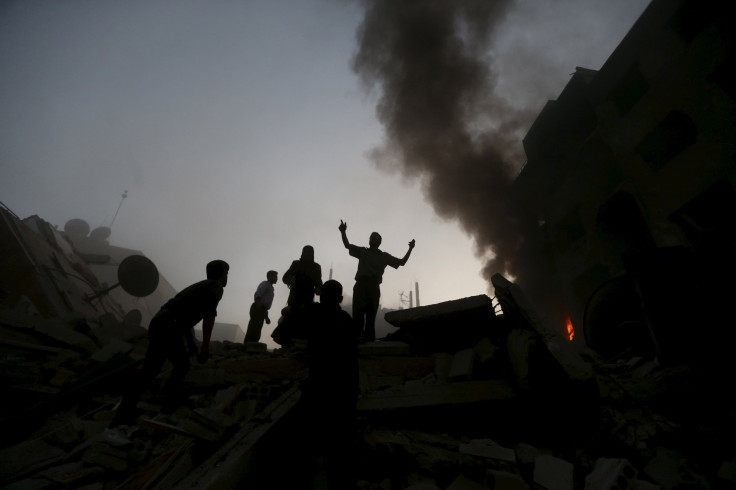Syrian Missile Strikes Kill At Least 50 In Douma

Syrian army missile strikes leveled buildings in a residential area northeast of the capital Damascus Saturday, resulting in at least 50 deaths, news agencies reported. The attack is the latest to hit the rebel-held area which has seen intense shelling and heavy casualties from airstrikes carried out by the regime in the last week, including a strike on a busy marketplace that killed more than 100 people.
Men, women and children were among those killed in Saturday’s strike. “There are entire families still under the rubble,” an official from the Syrian civil defense corps told Reuters Saturday, adding that workers were still carefully removing the rest of the debris to recover additional bodies. About 20 of the recovered bodies have been identified so far, and the death toll is expected to rise as more bodies are found, rescue workers said.
Saturday’s strikes hit the city of Douma, a rebel-held area about 10 miles northeast of the capital, Damascus. Last week’s attack on a Douma marketplace killed more than 100 people and injured around 500, and was considered one of the deadliest air raids in the Syrian civil war’s four-year history. Douma had already declared itself a disaster zone this week as it continued to withstand shelling.
The strikes on the marketplace triggered condemnation by the United Nations. U.N. aid chief Stephen O’Brien slammed the government of Syrian President Bashar Assad for “the total lack of respect for civilian life in this conflict” in remarks Tuesday, asking for all sides to respect international humanitarian law.
The U.S. State Department also spoke out against the attack. Department spokesman John Kirby issued a statement Tuesday saying the strikes “demonstrate the regime’s disregard for human life” and that Assad “has no legitimacy to lead the Syrian people.”
Douma is the most heavily populated city in the region of Eastern Ghouta, which has been controlled by rebel forces for the past two years. Eastern Ghouta was also the site of a 2013 attack involving the use of the chemical weapon sarin. That assault, thought to have killed between 500 and 1400 people, was considered to be the deadliest chemical-weapons attack in more than two decades.
© Copyright IBTimes 2025. All rights reserved.






















